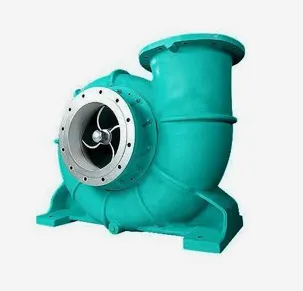Greek
- Afrikaans
- Albanian
- Amharic
- Arabic
- Armenian
- Azerbaijani
- Basque
- Belarusian
- Bengali
- Bosnian
- Bulgarian
- Catalan
- Cebuano
- Corsican
- Croatian
- Czech
- Danish
- Dutch
- English
- Esperanto
- Estonian
- Finnish
- French
- Frisian
- Galician
- Georgian
- German
- Greek
- Gujarati
- Haitian Creole
- hausa
- hawaiian
- Hebrew
- Hindi
- Miao
- Hungarian
- Icelandic
- igbo
- Indonesian
- irish
- Italian
- Japanese
- Javanese
- Kannada
- kazakh
- Khmer
- Rwandese
- Korean
- Kurdish
- Kyrgyz
- Lao
- Latin
- Latvian
- Lithuanian
- Luxembourgish
- Macedonian
- Malgashi
- Malay
- Malayalam
- Maltese
- Maori
- Marathi
- Mongolian
- Myanmar
- Nepali
- Norwegian
- Norwegian
- Occitan
- Pashto
- Persian
- Polish
- Portuguese
- Punjabi
- Romanian
- Russian
- Samoan
- Scottish Gaelic
- Serbian
- Sesotho
- Shona
- Sindhi
- Sinhala
- Slovak
- Slovenian
- Somali
- Spanish
- Sundanese
- Swahili
- Swedish
- Tagalog
- Tajik
- Tamil
- Tatar
- Telugu
- Thai
- Turkish
- Turkmen
- Ukrainian
- Urdu
- Uighur
- Uzbek
- Vietnamese
- Welsh
- Bantu
- Yiddish
- Yoruba
- Zulu
Telephone: +86 13120555503
Email: frank@cypump.com
Δεκ . 11, 2024 20:08 Back to list
pump for sewage
Understanding Sewage Pumps An Essential Solution for Wastewater Management
In modern wastewater management, sewage pumps play a crucial role in ensuring the effective disposal of wastewater and sewage from residential and commercial properties. These pumps are designed to transport wastewater containing solids and liquids to treatment facilities or septic systems, making them indispensable in maintaining sanitation and public health.
What Are Sewage Pumps?
Sewage pumps are submersible or pedestal pumps specifically designed to move sewage and wastewater. Unlike standard water pumps, sewage pumps can handle solid waste materials and debris without getting clogged. They are typically used in areas where gravity drainage is impractical, such as basements, homes below the municipal sewage line, or locations with inadequate drainage.
Types of Sewage Pumps
There are primarily two types of sewage pumps submersible pumps and pedestal pumps
.1. Submersible Pumps These pumps are designed to operate submerged in sewage. Since they are placed directly inside the wastewater, they can effectively pump sewage to the surface level. Submersible pumps are usually more powerful and are commonly used in residential and commercial applications. They are equipped with a motor that is hermetically sealed to prevent water from entering and damaging the internal components.
2. Pedestal Pumps Pedestal pumps are installed above the sewage level, with a pump body that is elevated and a long shaft extending into the wastewater. These pumps are easier to maintain and service since the motor is located above the sewage; however, they are typically less powerful than submersible pumps. Pedestal pumps are often used in smaller applications or where continuous operation is not as critical.
Applications of Sewage Pumps
Sewage pumps are versatile and serve various applications. Some common uses include
- Residential Sewage Handling In homes where the sewage system cannot rely solely on gravity, sewage pumps are installed in basements or crawl spaces to dispose of wastewater effectively. - Commercial Applications Many businesses, especially those in the service industry, require sewage pumps to handle wastewater from kitchens, restrooms, and laundry facilities.
pump for sewage

- Municipal Wastewater Systems Sewage pumps are integral components of municipal waste management systems, helping to transport sewage from residential areas to treatment plants.
- Construction Sites Portable sewage pumps are often used at construction sites to manage excess water and wastewater, ensuring a safe and clean environment for laborers.
Choosing the Right Sewage Pump
Selecting the appropriate sewage pump involves several considerations
1. Pump Capacity The capacity of the pump should match the volume of wastewater it needs to handle. Factors such as the number of fixtures, peak flow rates, and drainage requirements play significant roles in determining the right size and power.
2. Type of Solids It's essential to consider the type and size of solids the pump is expected to handle. Different pumps have various impeller designs suited for different types of waste.
3. Head Height This refers to the vertical distance the pump must push the sewage. Understanding the total dynamic head (TDH) helps in selecting a pump that can handle the elevation and distance efficiently.
4. Installation and Maintenance Consideration should be given to the ease of installation and maintenance. Submersible pumps may require more installation effort but tend to require less manual intervention than pedestal pumps.
Conclusion
Sewage pumps are the unsung heroes of wastewater management, ensuring that our homes and cities maintain cleanliness and public health standards. By understanding the types, applications, and important considerations for choosing sewage pumps, homeowners and businesses alike can make informed decisions that contribute to effective sewage handling and management. Proper installation, regular maintenance, and timely replacements when necessary can help extend the life of sewage pumps, ultimately promoting a healthier environment and community.
-
Horizontal Split Case Pump with GPT-4 Turbo | High Efficiency
NewsAug.01,2025
-
ISG Series Pipeline Pump - Chi Yuan Pumps | High Efficiency, Durable Design
NewsAug.01,2025
-
Advanced Flue Gas Desulfurization Pump with GPT-4 Turbo | Durable & Efficient
NewsJul.31,2025
-
ISG Series Vertical Pipeline Pump - Chi Yuan Pumps | Advanced Hydraulic Design&Durable Construction
NewsJul.31,2025
-
ISG Series Vertical Pipeline Pump - Chi Yuan Pumps | Energy Efficient & Low Noise
NewsJul.31,2025
-
pipeline pump - Chi Yuan Pumps Co., LTD.|High Efficiency&Low Noise
NewsJul.31,2025










